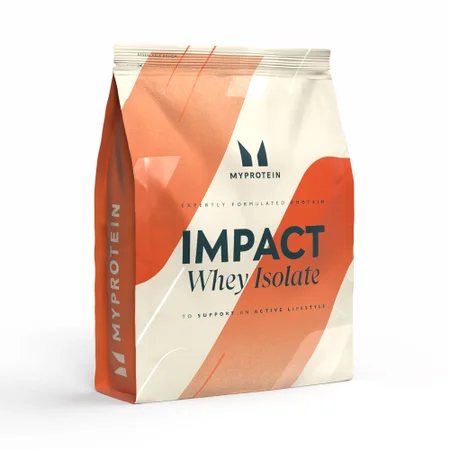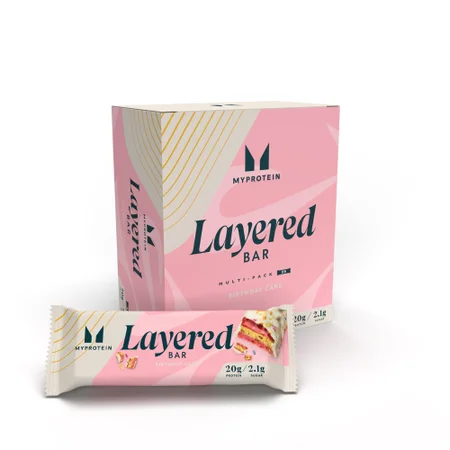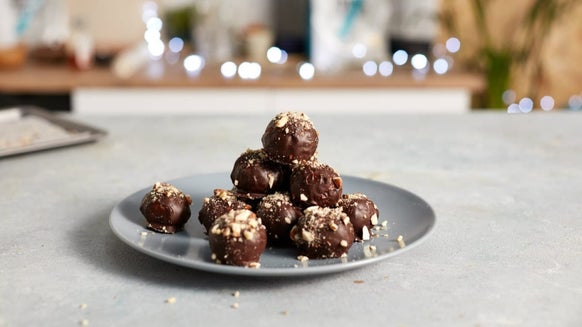80/20 Diet | What Is It & What Are The Benefits?

When it comes to diets, there are a lot of options to choose from. You can track macros or calories, cut out certain food groups, or follow specific meal plans. The 80/20 diet is less specific in terms of instructions and more flexible in approach compared to many other diets. If you want to try an eating plan that doesn’t feel overly restrictive in its approach, the 80/20 diet might be a good fit for you.
- The 80/20 diet
- The benefits of the 80/20 diet
- The disadvantages of the 80/20 diet
- What's the 80% made up of?
- What's the 20% made up of?
- Nutritionist's thoughts

The 80/20 diet?
The 80/20 diet is a form of flexible dieting based around eating nutritious foods most of the time (about 80% of the time) while still allowing for occasional treats (e.g. foods high in added fats and sugars). Some people may interpret this as eating very healthy foods during the week and treating themselves on the weekend, while others may allow one treat food every other day. There’s no one “right” way to follow the pattern.
What are the benefits of the 80/20 diet?
Realistic and not overly restrictive
The 80/20 diet follows the principle of eating healthy foods most of the time. It doesn’t require cutting out entire food groups or purchasing special ingredients for complex recipes. The lack of structure also allows for great flexibility, which may make it easier to stick to in the long run.
Focuses on a well-balanced diet
Healthy eating is the cornerstone of the 80/20 diet. Instead of an overly prescriptive diet plan, the 80/20 diet takes more of a flexible approach. It’s based on eating whole grains, vegetables, dairy and lean protein, similar to UK and US government dietary guidelines.
Nothing is totally off limits
It’s easy to fall off a diet when it restricts your favourite foods. But the occasional slice of birthday cake, glass of wine or packet of crisps is absolutely fine. With the flexible approach of the 80/20 diet, you can still eat these foods as long as you eat healthy the majority of the time.
Counting is optional
It can be tedious measuring macros or keeping track of every single calorie. While keeping some sort of food journal can help you stick to the 80/20 diet, it’s not a requirement like it is with other diets. You have the flexibility to follow your own approach, eat mostly healthy foods and the odd treat without spending all your time reading labels and counting up all your calories.
Can be used with other dietary patterns
Sometimes diets can be difficult to customise if you have other dietary needs or preferences. For example, vegans on a keto diet may have a very complex meal plan. Whether you have food allergies, avoid certain food groups or have religious or cultural food preferences, all of those can be easily worked into the 80/20 diet pattern.
The disadvantages of the 80/20 diet?
May not be structured enough
When it comes to sticking to a diet, some people need very strict rules to follow. If you want to try the 80/20 diet, it’s best to consider exactly how you’ll break up the 80 and 20 percent. Identify areas that might be challenging, so you don’t regularly go over the allotted 20 percent.
Requires some knowledge without much guidance
If you’re new to nutrition or have never really thought about your eating habits, the 80/20 diet’s lack of guidelines might be a disadvantage initially. But by following the list of suggestions later in this article, you should be able to get the hang of it quickly.
Can it help you lose weight?
Any diet can help you lose weight if you can achieve a calorie deficit. The 80/20 diet can be both effective for weight loss and sustainable if you are able to consistently consume fewer calories than you expend (through your daily activities plus exercise).
However, it's still possible to consume excess maintenance calories from 80 percent healthy foods. Eating reasonable portion sizes and being mindful of your overall intake is still important if you want to lose weight.
The rate of weight loss will depend on how drastically you are changing your habits. Weight loss will be more dramatic initially for people significantly cutting their usual calorie intake.
What is the 80%?
The majority of the 80/20 diet is made up of food groups considered to be healthy and nourishing. Whole grains, plant-based foods, lean proteins and healthy fats are mainstays of the diet.
Whole Grains
Examples: Oats, wholegrain bread, wholegrain pasta, brown rice, quinoa.
Vegetables (steamed, grilled, roasted)
Examples: Leafy greens, squash, peppers, tomatoes, edamame beans, potatoes, fresh corn, peas.
Fruits (fresh without added sugars)
Examples: Apples, avocados, bananas, berries, peaches, pears, melons.
Lean proteins (skinless, lean cuts)
Examples: Lean beef, chicken, fish, pork, turkey
Dairy (good source of calcium)
Examples: Low fat yoghurt, milk or milk alternatives, cottage cheese
Nuts and seeds (no added salt)
Examples: Almonds, cashews, chia seeds, hemp seeds, natural peanut butter, walnuts
What is the 20%?
Anything. These foods are eaten purely for pleasure and not primarily for nutrition.
Examples: desserts, fried foods, packaged snacks, glass of beer or wine
My thoughts
As a registered dietitian, I think the 80/20 approach to flexible dieting is one of the most realistic and sustainable eating patterns to follow. It allows you to enjoy life and foods when you choose. Rather than a diet, I like to think of the 80/20 as a broad approach to eating overall. It doesn’t need to be complicated, difficult to follow, or geared toward weight loss.
Take home message
The occasional treat eaten purely for enjoyment is absolutely fine as long as you eat well and consume nutrient-dense foods the majority of the time. The 80/20 diet is a straightforward, flexible and realistic approach to eating that can be adapted to fit within dietary restrictions and food preferences, making it far easier to follow and stick to in the long term.
READ THESE NEXT:

Push, Pull, Legs Split | Why It’s The Best Workout Split For Building Muscle
The holy grail of workout splits.

Pull-Ups Challenge On Moving Helicopter
All in an attempt to beat the world record.

10 Food Hacks To Save Money & Build Muscle
Spoiler: head straight to the freezer section.

Claire is a Registered Dietitian through the Academy of Nutrition and Dietetics and a board-certified Health and Wellness Coach through the International Consortium for Health and Wellness Coaching. She has a Bachelor of Science in Biology and a Master’s degree in Clinical Dietetics and Nutrition from the University of Pittsburgh.
Talking and writing about food and fitness is at the heart of Claire’s ethos as she loves to use her experience to help others meet their health and wellness goals.
Claire is also a certified indoor cycling instructor and loves the mental and physical boost she gets from regular runs and yoga classes. When she’s not keeping fit herself, she’s cheering on her hometown’s sports teams in Pittsburgh, or cooking for her family in the kitchen.
Find out more about Claire’s experience here.








